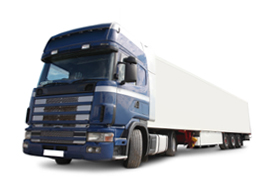U.S’ Mandatory Electronic Stability Control to Be Introduced in 2019
Mandatory electronic stability control will soon apply in The United States. The new requirement which will come into effect in 2019 is expected to save around 50 lives a year.
According to the legislation, all trucks in the United States that are manufactured on or after August 1, 2019 will have to have electronic stability control fitted.
The US Government has made the decision to mandate electronic stability control (ESC) for vehicles that weigh more than 11 tonnes, in an effort to improve safety in the trucking industry.
The country’s National Highway Traffic Safety Administration (NHTSA) recently announced that most of the industry’s heavy vehicle fleet (3 axle trucks) will have to integrate anti-rollover technology by August 1,2017.
Trucks and buses manufactured on or after August 1, 2019 will have to have electronic stability control (ESC) fitted.
The ruling states the following:
“This final rule is applicable to all new typical three-axle truck tractors manufactured on or after August 1, 2017,” the NHTSA’s ruling states.
“We believe that two years of lead time is sufficient for these vehicles to be equipped with ESC, given that this is a common platform for which ESC systems are readily available today.”
“We are allowing four years of lead time for all other truck tractors.
“These vehicles include two-axle vehicles, which have been more recently required to satisfy new, reduced minimum stopping distance requirements, and severe-service tractors, for which we believe two additional years of lead time is necessary to design and test ESC systems.”
Source: http://www.fullyloaded.com.au
It is estimated that the implementation of ESC will prevent as many as 1,759 crashes, 649 injuries and 49 fatalities annually. They will also prevent up to 56 per cent of rollover crashes not caused by the vehicle hitting an object or leaving the road.
[Tweet “It is estimated that the implementation of ESC will prevent as many as 1,759 crashes and 49 fatalities annually”]
A representative from the NHTSA explained:
“ESC is a remarkable safety success story, a technology innovation that is already saving lives in passenger cars and light trucks,”
“Requiring ESC on heavy trucks and large buses will bring that safety innovation to the largest vehicles on our highways, increasing safety for drivers and passengers of these vehicles and for all road users.”
US transportation secretary Anthony Foxx stated in the post on Fullyloaded.com.au
Since 2012 ESC has been mandatory for light duty vehicles in The US. The National Transportation Safety Board has been working since 2011 to have the same applied to heavy vehicles in the country. According to the NHTSA reducing the number of crashes through ESC in trucks and buses will save lives.
Authorities were considering managing roll stability control (RSC) as an alternative to ESC but found that it did not offer the same safety benefits. RSC systems are less effective in preventing rollovers and were also found to be less effective at preventing loss-of-control crashes, the NHTSA found.
Finally the NHTSA decided on the mandatory ESC which they said would be cost effective and more beneficial. Expected financial benefits range from US$412 to $525 million. Implementing the ESC system will cost US$585 per truck and US$269 per bus.
Here at home only NSW is making ESC mandatory. By 2019 all heavy vehicles travelling on the state’s roads will have to have ESC fitted.
Independent federal MP Cathy McGowan has in the past called on the Federal Government to follow the lead of NSW, with the Australian Trucking Association also backing the call.



